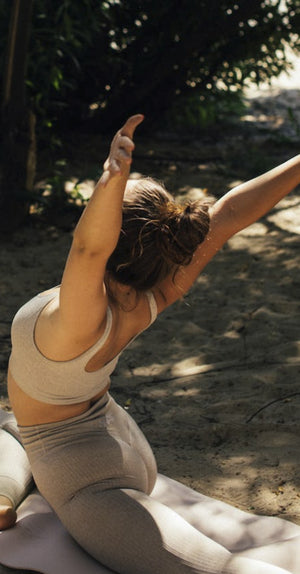Staying hydrated is key to many functions in the human body, and in summer heat, it can be difficult to maintain adequate hydration.
Water regulates our internal body temperature and the body’s ability to stay cool in hot weather is dependent upon proper hydration. But water is not often enough because the body cannot fully absorb the water you drink without electrolytes and sweating causes a loss of electrolytes. It is very common for many people to become dehydrated without even realizing it. Exercise in the heat compounds this risk and overall, children and the elderly are most at risk.
What are electrolytes and why are they important?
Water and electrolyte balance are critical for function of all the organs and health in general. Electrolytes are minerals in body fluids that carry an electrical charge. Every message sent through the nervous system, including the brain, involves electrical transmissions between nerve cells. These transmissions require electrolytes, particularly sodium and potassium.
Minerals that help keep our body thermostat regulated.
The most common electrolytes to become deficient include magnesium, potassium and sodium:
Magnesium helps with body temperature regulation and is required for more than 300 biochemical reactions in the body.
Sodium is an essential mineral that regulates fluid balance, blood pressure, nerve conduction, and more.
Potassium is crucial for fluid balance and common signs of low potassium include leg cramps and low energy levels. It is vital to overall cardiovascular health, healthy blood pressure, and high potassium intakes are linked to decreased stroke risk. drinking large amounts of soda and other sugary drinks deplete potassium.
Dehydration
Under normal conditions, we all lose body water daily through sweat, tears, breathing, urine, and stool. In a healthy person, this water is replaced by drinking fluids and eating foods that contain water. If a person is sick with fever, diarrhea, or vomiting dehydration commonly happens. When the body loses more fluid than it takes in dehydration is the result.
In the summertime, symptoms of dehydration are fairly common. Most people don’t realize they are dehydrated until they feel thirsty which is the first signal from the body telling you that you are on the way to dehydration. Other symptoms include: fatigue, headaches, muscle weakness, light headedness/dizziness, confusion, dry cracked lips, skin that stays indented after being pinched and released, and fast heart rate.
In children, additional symptoms may include: dry mouth or tongue, no tears when crying, no wet diapers for hours, listlessness, and irritability.
What something more visual? Check your urine. Urine should be pale yellow to clear but when you are dehydrated it is a darker yellow or cloudy.
Severe dehydration and heat stroke
Heat stroke develops rapidly and occurs when a person becomes dehydrated and cannot sweat enough to cool his or her body, his or her internal temperature may rise to dangerously high levels. If you suspect you’ve developed heat exhaustion, heat stroke or developed severe electrolyte loss, and you’re suffering from severe cramping or light headedness, or a rapid heartbeat, seek immediate medical attention.
You should never drink large amounts of plain water after profuse sweating, especially if you have already developed some symptoms of heat exhaustion. Adding more fluid to your system without also adding electrolytes might lead to a more severe electrolyte imbalance.
How can dehydration be prevented?
Take precautionary measures to avoid the harmful effects of dehydration, including the following:
- Drink plenty of fluids, especially when working or playing in the sun. First and foremost, drinking water consistently throughout the day is very important. The majority of your fluids should come from water as well as some electrolyte beverages, but you can also get hydration and electrolytes from food. Foods that are water-rich—like cucumbers, watermelon, apples, peaches and other juicy foods. Just make sure you are taking in more fluid than you are losing.
- Try to schedule physical outdoor activities for the cooler parts of the day.
- Drink appropriate sports drinks to help maintain electrolyte balance. Consume plenty of electrolytes since they are the key to absorbing water you drink. Talk to the staff at the Vitamin Shop for recommendations on good electrolyte powders to add to your water or sport drinks that contain electrolytes. This is important for young children also who are playing in the sun all day.
- Be aware that even though alcoholic beverages like beer or coolers provide fluid, alcohol is also dehydrating. Rule of thumb, drink one glass of water per one alcoholic drink to prevent dehydration.
Hydration is important and complex. Moving forward, don’t just focus on gulping down as much water as you can, but be sure you’re consuming electrolytes as well.
KAREN JENSEN, ND
Karen Jensen was in clinical practice for 25 years and although she is retired, she continues to write books and educate on the naturopathic approach to wellness. She is author or co-author of seven books, her most recent is Women’s Health Matters: The Influence of Gender on Disease.

